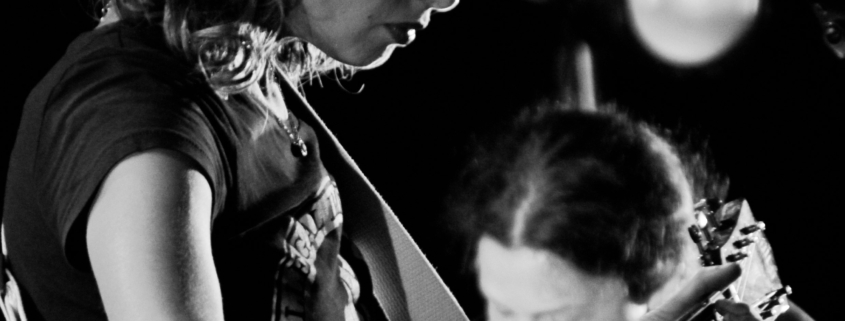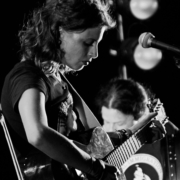Nicole Coceancig – Zohra
by Ignazio Gulotta – distorsioni.net
We saw Nicole Coceancig in November when the young musician from Friuli won the well-deserved Ciampi Award. On stage at the Teatro Goldoni, she immediately won us over with her determination and personality, even in her short set of two songs. Of course, as soon as it was released, we immediately bought her CD “Zohra”, a concept album based on the fictional but extremely realistic story of a young Afghan girl forced to leave her country and seek refuge in Europe. The album is the story of her odyssey, unfortunately common to many who are forced to flee due to war, hunger and political repression. To tell this story, Nicole Coceancig, who is not lacking in courage in her choices, has used the Friulian dialect, which adds emotional strength to her songs, in which one can breathe the flavour of a land and a people little inclined to rhetoric, who know the harshness of life and the generosity of a land that has been and is a crossroads of peoples and cultures, but which risks forgetting its history by drowning in the rhetoric of “masters in our own home”. ‘Zohra’ is a passionate and dramatic cry to rediscover the values of humanity and empathy for those who suffer, values that are more necessary than ever in these dark times when calls for war and the genocide of entire peoples tragically resurface amid the cynical indifference of the ruling classes. The album is released by the Nota label, and you can order the CD on its website, which also features Gualtiero Bertelli, Giovanna Marini and Caterina Bueno, names that Coceancig now stands alongside, joining that noble tradition of civil song that has given so much to Italian folk music. To tell the truth, in terms of expressive power and ability to move the listener, it does not seem blasphemous to compare her even to the great Joan Baez. After all, the Friulian singer’s voice is highly effective in expressing the moments of pain, loneliness and anguish of her protagonist, for example in the touching beginning of Di Trop Che o Ai Ciaminat or in the intense Ciare Mame, as well as the strength, determination and anger that animate her during her journey to Europe. In the sombre and sorrowful Chiamami Per Nome, the arrangement seems to come in waves, the voice becomes more dramatic and the lyrics impressively evoke the sense of loss that comes when one risks losing one’s identity: “Call me by my name/but do it in the dark/because in this story/the light is more frightening”. The acoustic arrangements by Nicole herself and Leo Virgili, who plays guitar on the album, create the appropriate pathos and the right dramatic atmosphere, never overshadowing the protagonist, the voice, but accompanying it beautifully with a predominantly minimalist approach, but also in some cases emphasising it, as in Silos thanks to the strings, or in the splendid La Liende Dal Silveri, where the voices of the guitars, strings and percussion intertwine fascinatingly to accompany a song that is a sort of warning not to shut oneself away and a hope for a different future, because, as the title of the traditional villotta rearranged at the end of the album Non C’è Mai Stata Pioggia (There Was Never Any Rain) says, Zohra has set out to conquer her freedom and independence. The hope is that the public will become aware of this work, listen to it and appreciate its undoubted qualities. With Nicole Coceancig, we can salute an artist who is not afraid to appear committed, to sing about our unhappy times and knows how to do so excellently. The CD has a very well-designed booklet containing the lyrics in Friulian and translated into Italian.
Rating: 8/10
This post is also available in: Italian





